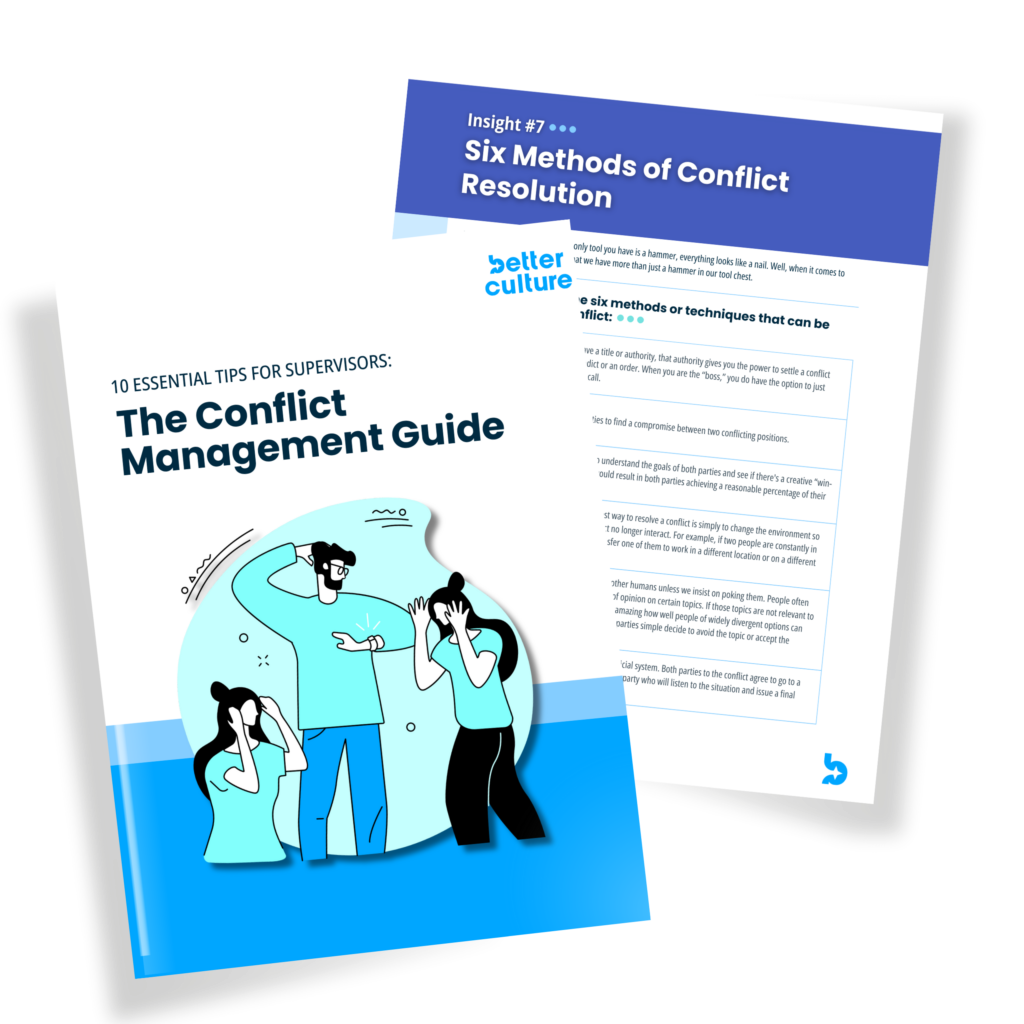With a new year just around the corner, it’s the perfect time to hit pause and ask yourself: Is my leadership making waves or just treading water? The new year is all about fresh starts and big goals, so why not set some leadership resolutions that will make a real difference for you and your team?
At BetterCulture, we help leaders like you make work better—for everyone. That’s why we love encouraging leaders to take a step back and check in on how well they’re living out the Seven Principles of Leadership©.
Whether you are looking to fine-tune your skills or tackle big improvements, the questions below are designed to spark reflection and guide you toward areas where you (or your company) might want to focus on improvement. Think of it as a mini-leadership inventory to help you set your sights on growth.
What follows is a listing of BetterCulture’s Seven Principles of Leadership©: the powerful and time-tested leadership framework responsible for helping countless businesses improve business performance by upskilling leaders and improving company culture. Let’s dive in.
Principle #1: Leaders maintain a never-ending focus on mission, culture, and the pursuit of excellence.
- Do your team members feel viscerally connected to the mission of your organization?
- Do you have a clear vision for the culture you want to create and protect? Can you describe it in terms of attitudes and behaviors?
- Do you have an accurate understanding of the health of your culture within each of your different work teams? (if not, feel free to contact us about our BetterCulture Survey).
- Do you have a well-thought-out strategic plan for cultural health? (if not, would you like BetterCulture to help you develop one?)
- What steps are you taking to keep supervisors and team members focused on the importance of a healthy work culture? What tools, guideposts or training are you providing them?
- What do you or your company do to keep employees focused on excellence and to foster a continuous desire for improvement?
Principle #2: Leaders create an environment where staff feel proud of their company – and know that their company is proud of them.
- What should your employees be most proud of about your organization? Are you communicating enough about those things?
- Do you have mystique stories, and are they being told?
- What do you or your company do to ensure your good employees know that their company is proud of them? Are you doing enough to ensure that employees feel valued and appreciated?
- Are you creative in how you recognize employee achievement and show appreciation?
- How could you be even better at expressing genuine employee appreciation?
Principle #3: Leaders work hard to help staff be successful at work and in life.
- What do you or your company do to show employees that you are committed to their success?
- Specifically, what do you do to advance the professional success of your team members? What else could you be doing?
- How about outside of work? What are some of the things your employees experience that let them know their company is committed to advancing their success in life?
- How are you stacking up to the competition? Are other companies doing more to invest in the success of their employees?
- What more could you be doing to show employees that you want them to achieve success – both at work and in life?
Principle #4: Leaders protect the right of good staff to work with good staff.
- How well do you or your company ensure that employees meet clear performance expectations?
- How do you deal with attitude issues? Do you make sure your good employees are working with colleagues who meet reasonable expectations regarding their social skills and attitudes?
- How quickly do your employee discipline or performance management processes move? Are issues addressed swiftly or left to languish for months (or years!) on end?
- When working with a low-performing employee, do you assure colleagues negatively impacted by that employee that you are aware of the issue and are addressing it?
- How could you be more effective on this principle?
Principle #5: Leaders encourage and promote open discussion and analysis as a predicate to decision-making.
- Do you and your company use decision-making processes and practices that help team members understand and accept company-level decisions?
- Do employees feel that they have opportunities to provide input (when possible) on decisions that will impact them?
- Do employees know why and how decisions are made?
- Do you take advantage of opportunities to involve team members in decision-making processes to help them learn and grow?
- How else could you improve your decision making or communication practices?
Principle #6: Leaders deal effectively with conflict.
- Does your team or organization have an unhealthy amount of damaging, interpersonal conflict?
- Does your team or organization have enough healthy, stimulating, intellectual conflict? Are intellectual conflicts respected and even encouraged?
- How effectively do you or your team navigate disagreements?
- Do team members feel comfortable speaking up if they have an idea or disagree with another’s suggestion?
- Do your employees recognize that great ideas are sometimes found on the other side of intellectual conflict?
- Are personal conflicts quickly and effectively addressed, i.e., not allowed to fester?
- Do you have room for improvement?
Principle #7: Leaders encourage others to enjoy their work.
- Do you and your team members enjoy their time at work? What does each person enjoy most? How could you help them do more of what they enjoy?
- Is your daily work environment enjoyable and fun?
- Is laughter often heard?
- What else could you do to ensure that others are enjoying the massive amount of their life that they spend at work?
In Conclusion…
We hope reflecting on those questions gives you a LOT to think about for how you can provide leadership for your team and your organization. A better workplace culture will create a better business.
If you have previously been exposed to BetterCulture’s leadership training, we hope these questions remind you of the scores of insights and techniques we teach that help organizations build world-class team and company cultures.
For readers who are new to BetterCulture, please subscribe, stay in touch, or even book a meeting to see if we can help you build a better business and a better culture.




